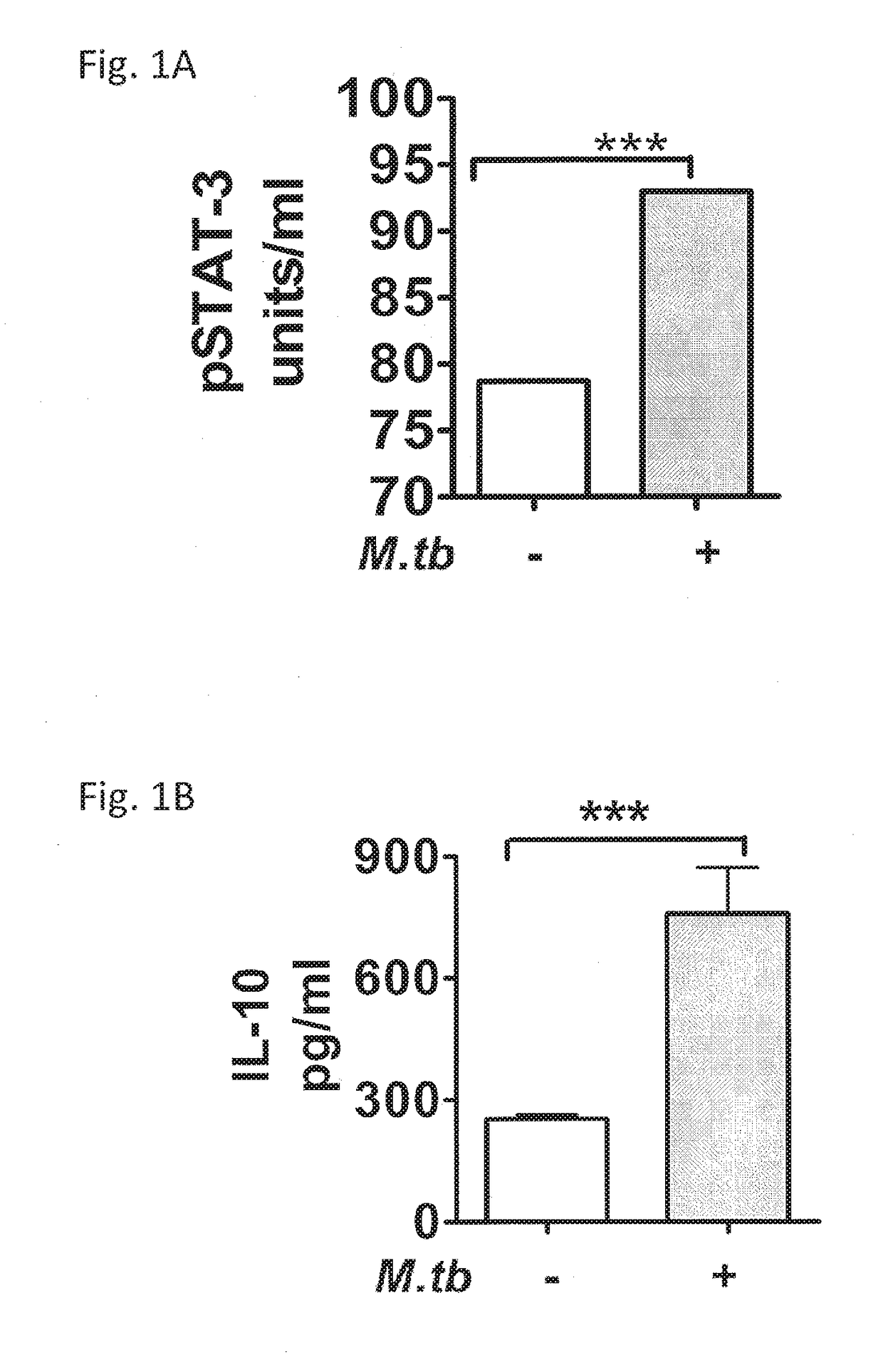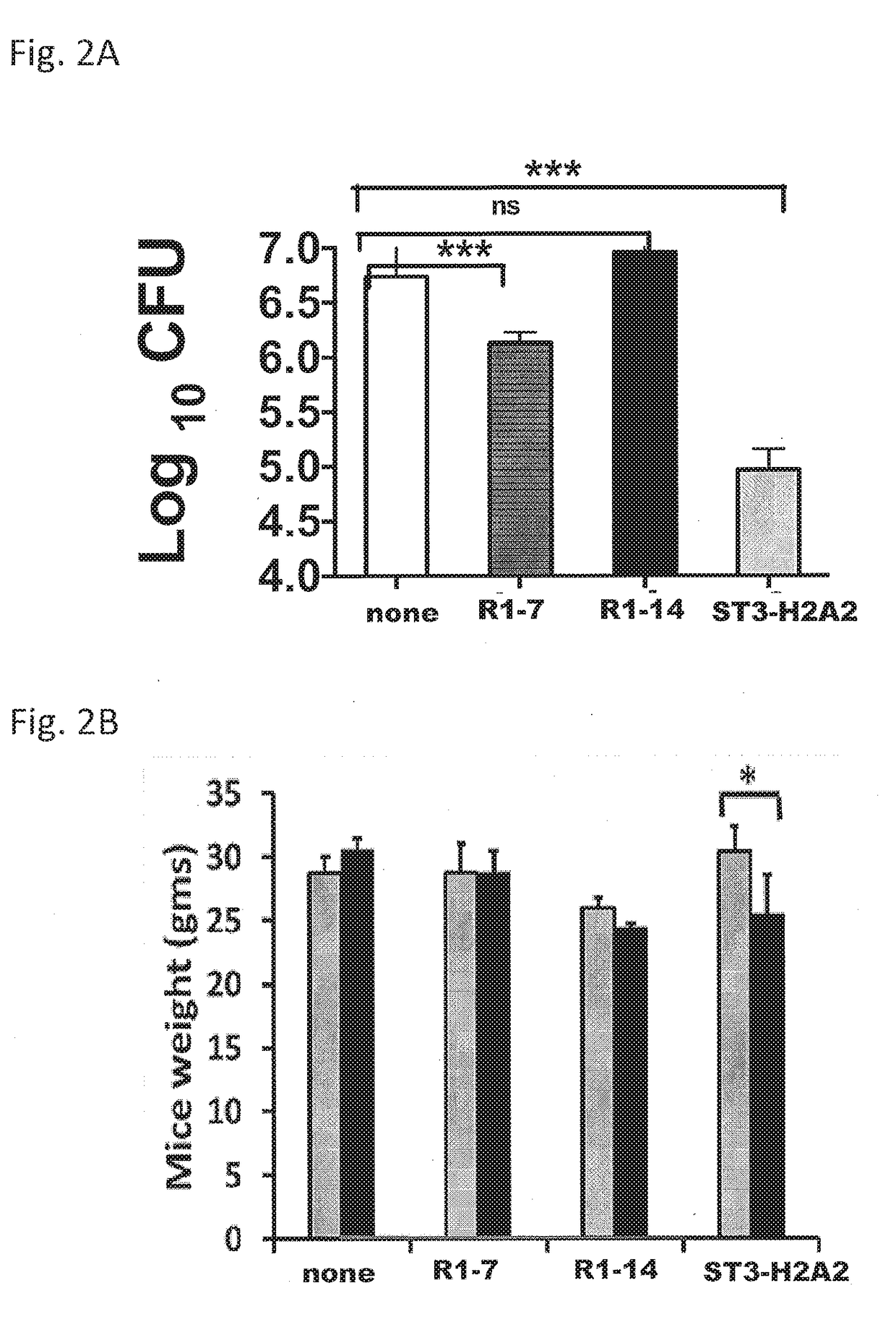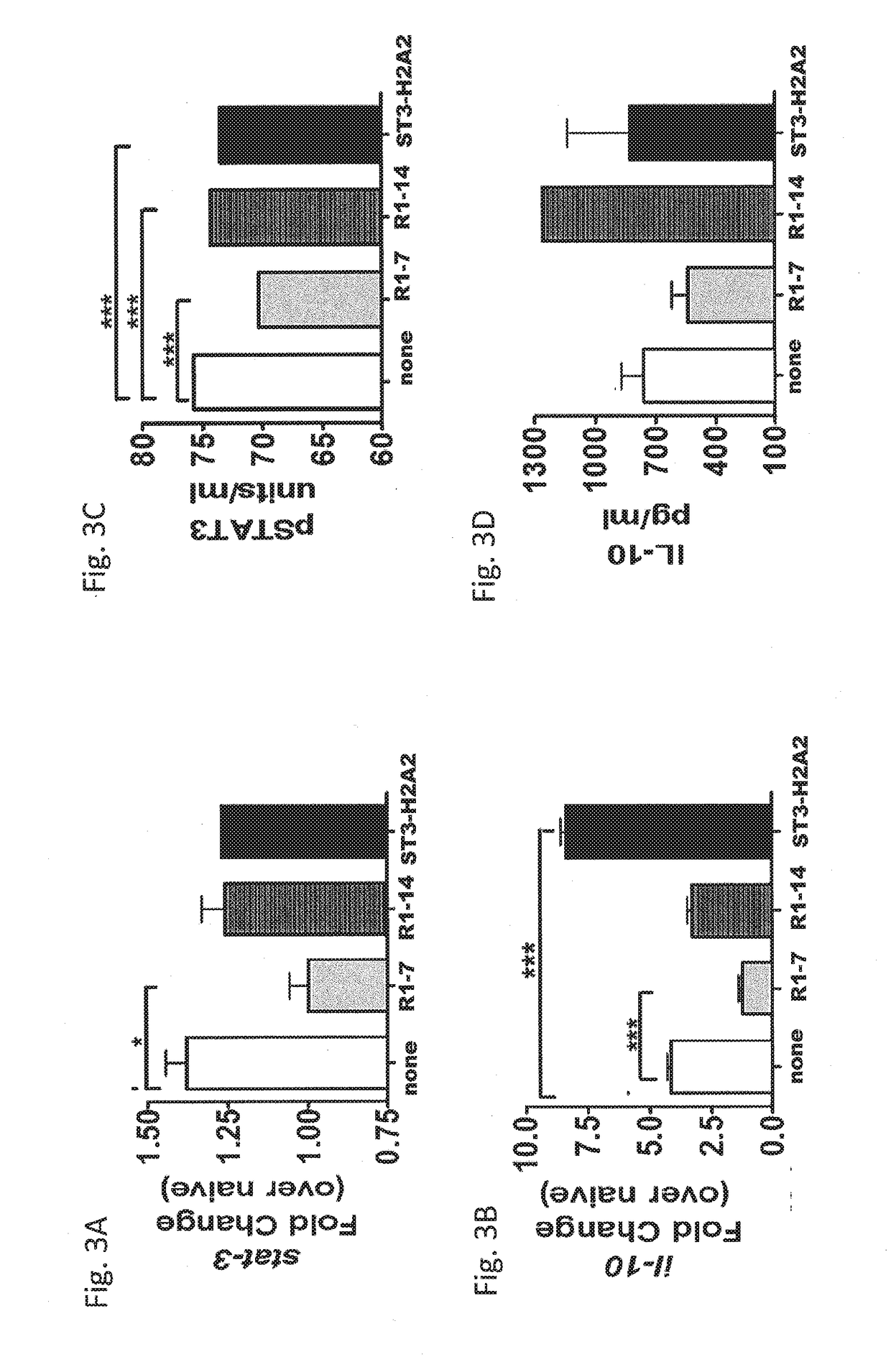Use of peptide-based inhibitors of the stat3-il10 pathway for treating bacterial infection and granulomatous disease
a technology of stat3-il10 and inhibitors, which is applied in the direction of antibacterial agents, peptide/protein ingredients, aerosol delivery, etc., can solve the problems of inability to rapidly eliminate i>mycobacterium in tuberculosis chemotherapy, failure to cure more than 50% of cases, and prolonged treatmen
- Summary
- Abstract
- Description
- Claims
- Application Information
AI Technical Summary
Benefits of technology
Problems solved by technology
Method used
Image
Examples
example 1
[0071]This example demonstrates describes the materials and methods for the remaining Examples set forth herein.
[0072]Mice and Experimental Infection
[0073]Six to eight weeks old C57BL / 6 female mice were purchased from Jackson (Bar Harbor, Me.). The IACUC of Colorado State University approved all animal procedures used in this study. The mice were kept in sterile condition in BSL3 facilities and they were rested for a week prior to infection. The mice were then infected with a low dose aerosol infection using the Glass-Col System to deliver ˜50-100 Mycobacterium tuberculosis (Mtb) (Erdman strain, TMC107; ATCC 35801) bacilli per mouse.
[0074]Bacterial deposition in the lungs after aerosol was assessed by sacrificing three mice at day 1 post-infection and determining bacterial load as follows. Following euthanasia, mouse tissues (lung and spleen) were homogenized using the Next Advance Bullet Blender (Averill Park, N.Y.). Briefly, the left lobe of the lung or spleen was placed in a 1.5 ...
example 2
[0104]This example demonstrates the expression of STAT3 and IL-10 in the lungs of mice infected with Mycobacterium tuberculosis (Mtb).
[0105]Previous studies have reported the up-regulation of expression of IL-10 in the lungs of chronically Mtb infected (Beamer et al., J. Immunol., 181, 5545-5550 (2008); Higgins et al., J. Immunol., 180: 4892-4900 (2009); Ordway et al., J. Immunol., 176: 4931-4939 (2006), Rosas-Taraco et al., Tuberculosis, 91: 98-106 (2011); Turner et al., J. Immunol., 169: 6343-6351 (2002); and Turner et al., Infection and Immunity, 69: 3264-3270 (2001)). However, the expression of STAT3 or its phosphorylated form pSTAT3 in the lungs of mice chronically infected with Mtb has not been reported previously.
[0106]The expression of STAT3 and IL-10 in the lungs of mice with a chronic infection of Mtb was determined using ELISA, CBA and immunohistochemistry (IHC) to recognize pSTAT3 or IL-10 (FIGS. 1A and 1B) and via RT-PCR for transcripts of stat3 or il-10 (FIGS. 3A-3D). ...
example 3
[0109]This example demonstrates the pulmonary bacterial load for mice treated with peptide inhibitors of STAT3 or IL-10.
[0110]The effect of pharmacological intervention with the IL-10-STAT3 signaling pathway in the pulmonary Mtb bacterial load for aerosolized Mtb-challenged mice was determined. The results demonstrated that the pulmonary bacterial load for mice treated with 6 doses of 100 μg / dose of ST3-H2A2 during a two week period had been reduced by 1.7 log10 CFU when compared to control untreated mice chronically infected with Mtb.
[0111]Treatment of chronically Mtb infected mice with the peptide inhibitor IL10R1-7 also decreased the pulmonary CFU by 0.6 log10 whereas similar treatments with the peptide inhibitor IL10R1-14 showed a slight increase in the pulmonary CFU (FIG. 2A). Likewise the splenic bacilli load was reduced by 0.9 log10CFU only in mice treated with ST3-H2A2.
[0112]During treatment, mice generally did not show adverse effects except that mice treated for two weeks ...
PUM
| Property | Measurement | Unit |
|---|---|---|
| angle | aaaaa | aaaaa |
| volume | aaaaa | aaaaa |
| concentration | aaaaa | aaaaa |
Abstract
Description
Claims
Application Information
 Login to View More
Login to View More - R&D
- Intellectual Property
- Life Sciences
- Materials
- Tech Scout
- Unparalleled Data Quality
- Higher Quality Content
- 60% Fewer Hallucinations
Browse by: Latest US Patents, China's latest patents, Technical Efficacy Thesaurus, Application Domain, Technology Topic, Popular Technical Reports.
© 2025 PatSnap. All rights reserved.Legal|Privacy policy|Modern Slavery Act Transparency Statement|Sitemap|About US| Contact US: help@patsnap.com



